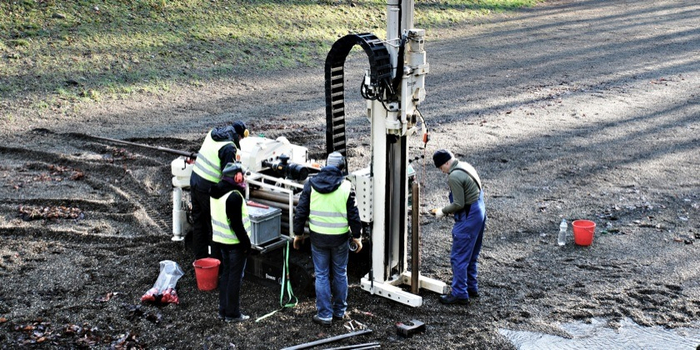Mitarbeitende
Raoul Collenteur


Über mich
Hydrologist focusing on groundwater related problems and developing open-source software to solve them. In my free time I enjoy exploring the mountains by foot, rope, or kayak.
[[ element.title ]]
[[ element.title ]]
Curriculum Vitae
| [[ entry.date || 'empty' ]] |
[[ element.title ]]
Publikationen
[[item.title]]
Collenteur, R. A., Vonk, M. A., & Haaf, E. (2025). Quantification and analysis of hydrograph behavior using groundwater signatures. Groundwater, 63(5), 779-789. doi:10.1111/gwat.13486, Institutional Repository
Vremec, M., Seelig, M., Seelig, S., Collenteur, R., Haslinger, K., Wagner, T., … Winkler, G. (2025). Trend analysis of Alpine spring discharge: Interplay between climate and discharge characteristics. Science of the Total Environment, 993, 179875 (12 pp.). doi:10.1016/j.scitotenv.2025.179875, Institutional Repository
Berghuijs, W. R., Collenteur, R. A., Jasechko, S., Jaramillo, F., Luijendijk, E., Moeck, C., … Allen, S. T. (2024). Groundwater recharge is sensitive to changing long-term aridity. Nature Climate Change, 14, 357-363. doi:10.1038/s41558-024-01953-z, Institutional Repository
Collenteur, R. A., Haaf, E., Bakker, M., Liesch, T., Wunsch, A., Soonthornrangsan, J., … Meysami, R. (2024). Data-driven modelling of hydraulic-head time series: results and lessons learned from the 2022 Groundwater Time Series Modelling Challenge. Hydrology and Earth System Sciences, 28(23), 5193-5208. doi:10.5194/hess-28-5193-2024, Institutional Repository
Kokimova, A., Collenteur, R. A., & Birk, S. (2024). Exploring the power of data-driven models for groundwater system conceptualization: a case study of the Grazer Feld Aquifer, Austria. Hydrogeology Journal, 32, 1729-1749. doi:10.1007/s10040-024-02830-x, Institutional Repository
Moeck, C., Collenteur, R. A., Berghuijs, W. R., Luijendijk, E., & Gurdak, J. J. (2024). A global assessment of groundwater recharge response to infiltration variability at monthly to decadal timescales. Water Resources Research, 60(6), e2023WR035828 (19 pp.). doi:10.1029/2023WR035828, Institutional Repository
Vonk, M. A., Collenteur, R. A., Panday, S., Schaars, F., & Bakker, M. (2024). Time series analysis of nonlinear head dynamics using synthetic data generated with a variably saturated model. Groundwater, 62(5), 748-760. doi:10.1111/gwat.13403, Institutional Repository
Vremec, M., Collenteur, R. A., & Birk, S. (2024). PyEt v1.3.1: A Python package for the estimation of potential evapotranspiration. Geoscientific Model Development, 17(18), 7083-7103. doi:10.5194/gmd-17-7083-2024, Institutional Repository
Collenteur, R. A., Moeck, C., Schirmer, M., & Birk, S. (2023). Analysis of nationwide groundwater monitoring networks using lumped-parameter models. Journal of Hydrology, 626, 130120 (15 pp.). doi:10.1016/j.jhydrol.2023.130120, Institutional Repository
Jemeļjanova, M., Collenteur, R. A., Kmoch, A., Bikše, J., Popovs, K., & Kalvāns, A. (2023). Modeling hydraulic heads with impulse response functions in different environmental settings of the Baltic countries. Journal of Hydrology: Regional Studies, 47, 101416 (18 pp.). doi:10.1016/j.ejrh.2023.101416, Institutional Repository
Rudolph, M. G., Collenteur, R. A., Kavousi, A., Giese, M., Wöhling, T., Birk, S., … Reimann, T. (2023). A data-driven approach for modelling karst spring discharge using transfer function noise models. Environmental Earth Sciences, 82(13), 339 (19 pp.). doi:10.1007/s12665-023-11012-z, Institutional Repository
[[ element.title ]]
[[ element.title ]]
Diese Person arbeitet nicht mehr an der Eawag. Bitte wenden Sie sich an info@eawag.ch für weitere Auskünfte.
[[ element.title ]]
[[ element.title ]]
[[ element.title ]]
Forschungsgruppen
Hydrogeology
